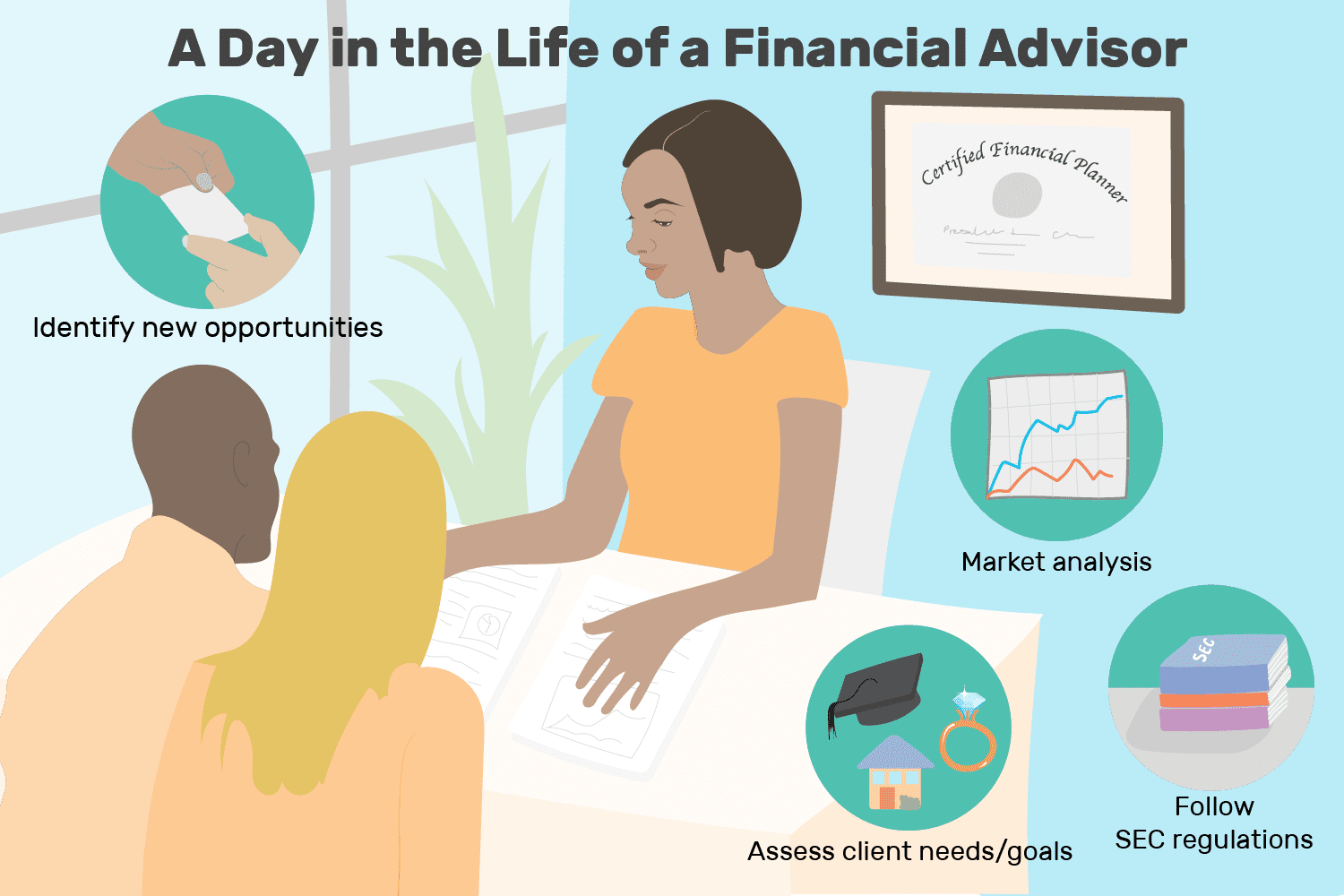
Consulting salaries are not the same everywhere. Some firms have a reputation for paying top dollar for experienced employees. It is possible to negotiate the amount you offer, but it is not recommended that you expect a major raise. You should remember these things when you negotiate for the best deal.
Base salary
Consider consulting if you're interested in a career. The average annual salary ranges anywhere from US$51769 to US$149770. EY's senior consultants earn an average salary of US$172,465 per year in New York. EY Senior Consultants attend many training sessions and get numerous tools and methods to support their work.

Consulting salaries increase fairly quickly within the top firms, but it is important to understand that this increase is often combined with a lifestyle bump. Compared to the average worker, consultants at top firms tend to receive a 12-20% pay bump and enjoy a better work-life balance. Although it can be extremely rewarding, consultants in the financial service industry can often see increases of up 30%.
Performance bonus
A performance bonus makes up a large part of the consulting salary. It is a significant amount, which can vary depending upon the industry and firm. Some bonuses can be more predictable than others. The maximum top-tier bonuses are approximately 60% of the base pay. Below this level, you can expect to make less than six thousand dollars a year.
If you're a recent MBA graduate, you might be tempted to start at a top consulting firm. After all, the compensation at these firms can be very attractive. A base salary of $190,000. Some firms may pay as high as $90,000. Additional bonuses include performance bonuses, which can vary from 5 to 15% of your base income.
Profit sharing
Over the past decade, the consulting industry has seen steady increases in its compensation year-over-year. Many firms have increased their total compensation and provided perks like profit sharing. In addition to increasing base salaries, many firms have increased signing bonuses and maximum performance bonuses. Many companies have also included perks such unlimited PTO, profit sharing, and other perks.

Employer level
The salary ranges of various consulting firms are based on the type of job and the experience of the individual. Deloitte and other consulting firms have a defined compensation structure. However, it is often possible for an individual to negotiate a higher pay. If you have the relevant experience, your recruiter can provide you with salary information. You may be eligible to negotiate a higher base salary and sign-on bonus depending on your role.
FAQ
Do I have to pay tax on consulting income
Yes, tax will be payable on any consultancy profits. This amount will depend on how much you earn each year.
You can also claim expenses if you are self-employed. This includes rent, childcare, food, and transportation.
You can't deduct the interest on loans, vehicle damage, or equipment costs.
If your annual income is less than PS10,000, you can only claim 25% back.
But even if you're earning more than this threshold, you might still be taxed depending on whether you're classed as a contractor or employee.
Pay as you Earn (PAYE) is the most common method of taxing employees. Contractors pay VAT.
Why would a company hire a consultant?
Consultants provide expert advice on how to improve the performance of your business. Consultants are not here to sell products.
A consultant is a person who helps companies make better choices by providing sound analysis, and making recommendations for improvement.
Consulting often works closely with senior management teams in order to help them understand the steps they must take to succeed.
They provide coaching and leadership training for employees to enable them to achieve their peak performance.
They may advise businesses on reducing costs, streamlining processes, and increasing efficiency.
What skills is required to consult?
A consultant should have strong analytical skills as well as interpersonal skills. This is vital because you may not understand the scope of your work. It is important to learn how to quickly solve problems and manage people.
You also need to have excellent communication skills. Most clients expect a reply within 24 hours. If they don't hear back from you, they assume you aren't interested. It's important, therefore, to always keep them informed and ensure they understand what is going on.
How is consulting different from freelancing
Freelancers are individuals who work for themselves and offer their services to clients. Hourly rates are usually charged based on the time they spend working on a client’s project. Consultants work for companies and agencies that employ them. Their salaries are often paid monthly, or annually.
Consultants have less flexibility than freelancers because they can control their work hours, and set their own prices. But consultants have more benefits like vacation days, health insurance and retirement plans.
What kind of jobs are there for consultants?
Consultant work requires a deep understanding of business strategy, operations, and other aspects. You must also understand how businesses operate and how they fit into society.
Consultant work requires excellent communication skills and the ability to think critically.
Consultants should be flexible because they may be asked for different tasks at various times. Consultants should be able to quickly change their direction if necessary.
They should be able to travel extensively for clients. This kind of work can take them around the world.
They should also be able manage stress and pressure. Consultants might sometimes have to meet tight deadlines.
Consultants may work long hours. This means that you may not always get paid overtime rates.
Statistics
- 67% of consultants start their consulting businesses after quitting their jobs, while 33% start while they're still at their jobs. (consultingsuccess.com)
- According to IBISWorld, revenues in the consulting industry will exceed $261 billion in 2020. (nerdwallet.com)
- According to statistics from the ONS, the UK has around 300,000 consultants, of which around 63,000 professionals work as management consultants. (consultancy.uk)
- On average, your program increases the sales team's performance by 33%. (consultingsuccess.com)
- WHY choose me: Why your ideal client should choose you (ex: 10 years of experience and 6-week program has helped over 20 clients boost their sales by an average of 33% in 6 months). (consultingsuccess.com)
External Links
How To
How Do I Find A Good Consultant?
It is important to understand what you are looking for in a consultant before you can find one. Do you want them to help you improve your website's performance? You want them to optimize the site for search engines to make it rank higher. You might also want someone to help you determine if your hosting provider is in trouble. After you have decided what services you need, it is time to start looking at potential companies. There are many consultants out there who claim they can provide these services, but only a few actually live up to their claims. How do you select the right consultant for your project? These are some things you should consider when choosing a consultant.
-
Get referrals. This is the best method to find a consultant. You don't want to hire someone you've never heard of before because you'll likely pay too much. But you also don't want to work with someone whose reputation isn't solid. You're fortunate enough to receive referrals from people you trust. Even if you don’t have any referrals, you can still look online for reviews. Find testimonials and case study examples from customers who have used your product.
-
Ask around. Many people are not aware of the benefits of hiring a consultant. They believe that because they're doing well, they don’t need to make any changes. This is often false. Even if you are seeing great results, it is likely that you have not been keeping up to date with technology and trends. Relying on outdated methods will prevent you from maximizing your potential for growth. It's always worth asking around to see if anyone knows of a good consultant.
-
Verify their qualifications. It doesn't matter if you are looking for a consultant to help you build a blog or launch a multimillion-dollar eCommerce site, you need to make sure they have the right skills to manage your project. Check that they are qualified to complete the tasks and have enough expertise in the chosen area.
-
Find out about the types of projects they specialize. It is a common misconception that everyone can manage everything. Some areas require specific types of training or education. For example, if you need someone to build a WordPress theme, you won't want to hire a developer who specializes in Drupal. The same applies to programming languages, graphic design and other areas. Ask the designer what kind of projects they have worked on in the past.
-
It is important to know what the charges are. As we mentioned, it is important to know what they charge. However, you don't need to pay too much. Consultants come in many sizes and shapes. While some consultants charge an hourly rate, others bill per project. It's cheaper to know upfront what you are paying than later.
-
What do they offer? Are they offering free consultations or other services? Will they give you advice on how to set up your own system? Can they guarantee your site will rank higher if you work with them? If you don't like what you hear during your consultation, you should feel confident knowing you can cancel without penalty.
-
Also, ask if discounts are available for multiple months and years. Many consultants offer discounted pricing over extended periods. Although you do not have to commit to a year, it is possible to take advantage of any offers they may offer.